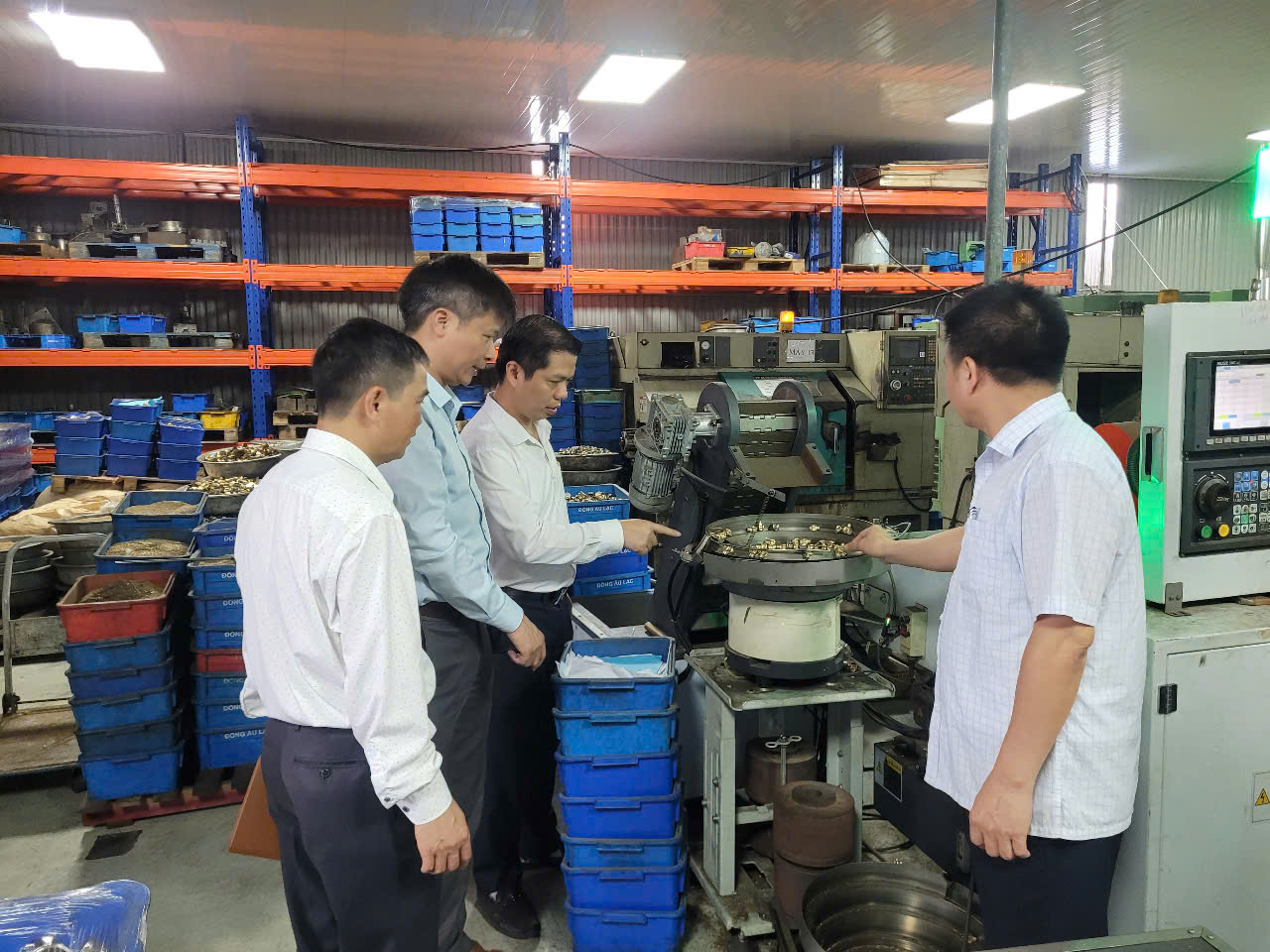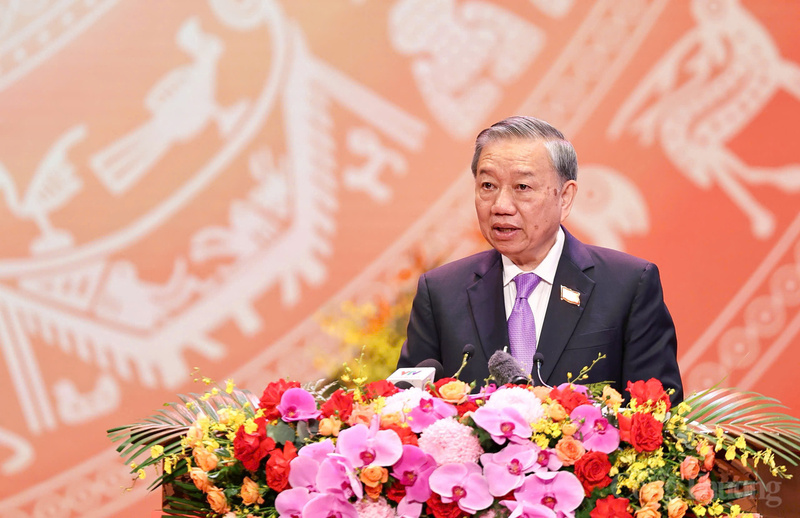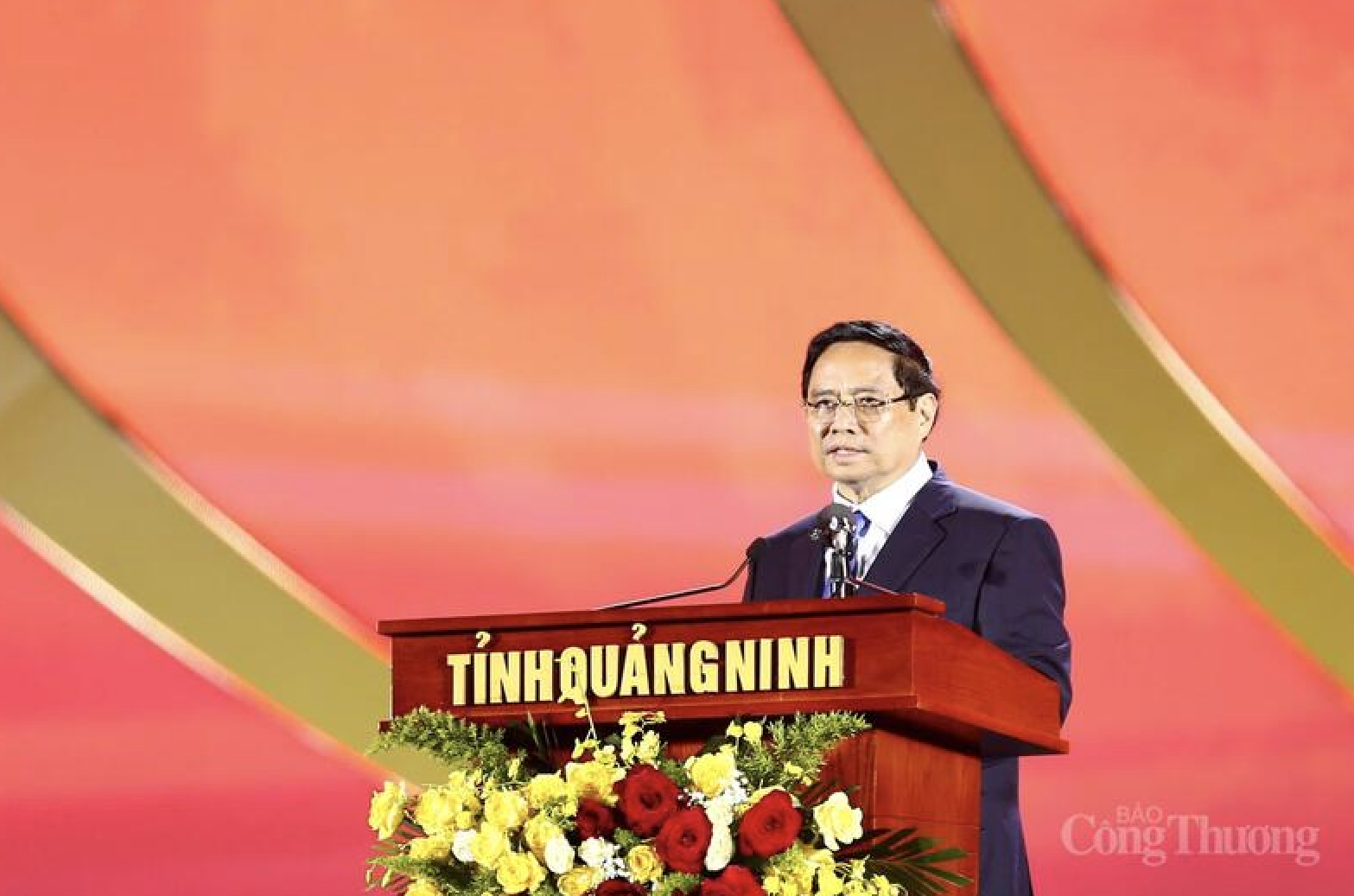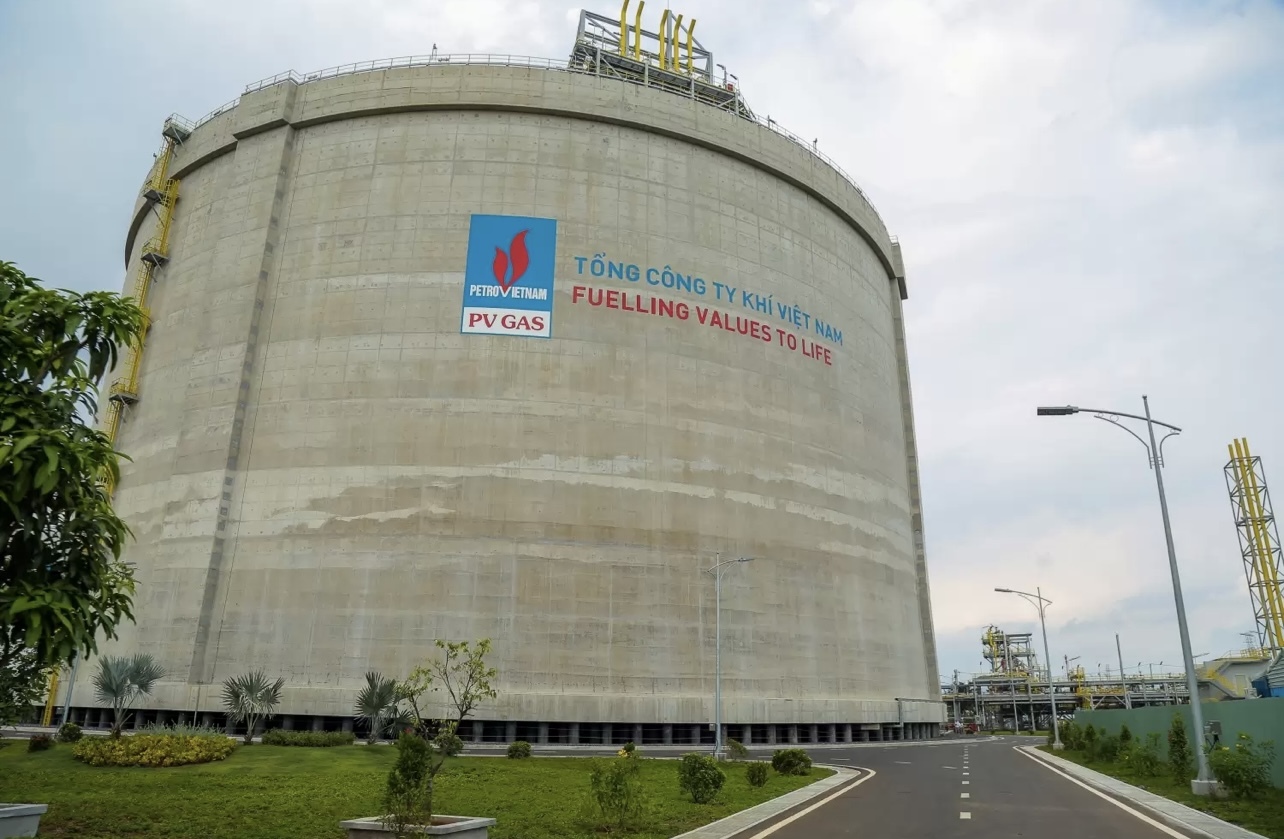
Bac Ninh’s rural industry: A boost from machinery support
19:05 | 23/03/2025 08:44 | 23/08/2025Industry
On the afternoon of May 30, the national scientific conference titled "100 Years of Vietnam’s Revolutionary Press Accompanying the Glorious Cause of the Party and the Nation" took place in Hanoi.
The conference was jointly organized by the Central Commission for Information and Education in coordination with the Ministry of Culture, Sports and Tourism; the Vietnam Journalists Association; Ho Chi Minh National Academy of Politics; Nhan Dan Newspaper; Communist Review; Vietnam News Agency; Vietnam Television; and the National Political Publishing House.
 |
| The conference in its entirety on the afternoon of May 30. |
The Press plays a role in purifying the apparatus and upholding justice
Vietnam’s revolutionary press began with the founding of Thanh Nien newspaper by leader Nguyen Ai Quoc on June 21, 1925. Upon its debut, Thanh Nien successfully disseminated revolutionary ideology to the masses, laying the political, ideological, organizational, and ethical groundwork for the founding of the Communist Party of Vietnam.
Under the leadership of the Party, the revolutionary press overcame numerous hardships, fueling trust and revolutionary fervor among generations of Vietnamese, thereby fostering national solidarity and contributing to the complete victory of the national liberation struggle.
Throughout the long journey toward national reunification and in subsequent wars to safeguard the country, the press demonstrated steadfast political resolve and served as a "sharp weapon" on the ideological and cultural front.
Delivering the keynote speech, Professor Nguyen Xuan Thang stated that continuing the proud tradition, today’s press corps plays a pioneering role in the fight against corruption, wastefulness, and other social ills. Many journalists and media agencies have bravely undertaken investigative reporting, persistently exposing wrongdoings and contributing to the purification of the political apparatus, the defense of justice, the enforcement of law and order, and the reinforcement of public trust in the Party and the State.
 |
| Professor Nguyen Xuan Thang delivered the keynote address at the conference. |
“This vividly reflects the courage, social responsibility, and unwavering loyalty to revolutionary ideals of those working on the frontlines of information in this new era,” Professor Nguyen Xuan Thang emphasized.
Drawing from valuable lessons over 100 years of revolutionary press history, Professor Thang affirmed that the press has remained a steadfast voice of the Party, the State, and the people, a sharp tool on the information-ideology-culture front, closely aligned with the revolutionary cause and deeply embedded in the process of national development and defense.
Highlighting the century-long glorious path of Vietnam’s revolutionary press, Head of the Central Propaganda and Mass Mobilization Commission Nguyen Trong Nghia remarked that over nearly 40 years of Doi Moi (Renewal), the press has played an increasingly vital role in promoting, encouraging, and mobilizing the Party, the people, and the armed forces to successfully implement the reform agenda initiated and led by the Party.
He further noted that journalism plays a key role in promptly reflecting exemplary models, best practices, and valuable experiences at both individual and local levels, enabling their dissemination and application to foster national socio-economic development.
The press also engages in supervision, criticism, and constructive feedback on the Party’s policies and the State’s laws, thereby helping to enhance public participation in governance. It contributes significantly to Party building and State building, reinforcing public trust in the Party and the State, and defending the Party’s ideological foundation while countering false and hostile viewpoints.
Moreover, the press actively promotes Vietnam’s land, people, and cultural values to the international community, serving as a crucial bridge that enhances domestic understanding of regional and global developments. The country’s current achievements and growing international stature owe much to the contributions of the revolutionary press.
 |
| Nguyen Trong Nghia reflected on the glorious century-long journey of Vietnam’s revolutionary press. |
Mastering the information and communication front
Recognizing the enormous contributions and vital role of the revolutionary press, Tran Cam Tu, Politburo member and Standing Secretary of the Party Central Committee, noted that over the past century, Vietnam’s press has made remarkable strides in both scale and quality. Many press agencies have begun to master modern technologies and evolved into dynamic multimedia institutions.
 |
| Tran Cam Tu delivered a speech at the conference. |
To continue fulfilling its mission in the new era, Tran Cam Tu proposed five key solutions for the press:
First, Party committees at all levels, press agencies, and the Vietnam Journalists Association must further internalize the principle of absolute and comprehensive Party leadership over press activities to meet the demands of national renovation, construction, and development.
Second, journalism must stay closely aligned with the Party’s viewpoints, policies, and directives, keeping pace with the realities of life and the pulse of the times. The press should regularly cover major national issues such as political apparatus reform, socio-economic development, digital transformation, international integration, legislative processes, and preparations for Party congresses at all levels, heading toward the 14th National Party Congress.
Third, it is essential to continue restructuring and streamlining the press system toward greater professionalism and effectiveness, ensuring compliance with mandates and missions. Content must be objective and well-founded, with special attention to developing theoretical discourse around the Party’s viewpoints and policies on modern media platforms, thereby contributing to the country’s protection and development.
Fourth, the professional ethics and quality of journalists must be improved. It is crucial to build a corps of journalists, editors, and media professionals with strong political integrity, professional competence, and exemplary moral conduct—true role models and trailblazers on all fronts.
Fifth, efforts must be intensified to adopt scientific and technological advances, promote digital transformation, and increase the press’s presence in cyberspace. This will ensure mastery of the information and communication front and sustain the reputation and global standing of Vietnam’s revolutionary press.
Tran Cam Tu concluded: “The Party and State always place high hopes and create the most favorable conditions for the press to fulfill its functions and responsibilities".
| The conference received over 100 papers and presentations from researchers, experts, journalists, and press managers nationwide. The contributions highlighted the historical role and significant contributions of the press throughout various periods of national resistance, reconstruction, and defense. They also put forward solutions for the continued sustainable development of Vietnam’s revolutionary press to meet the demands of the new era. |

19:05 | 23/03/2025 08:44 | 23/08/2025Industry

19:05 | 23/03/2025 17:07 | 20/08/2025News and Events

19:05 | 23/03/2025 11:20 | 18/08/2025News and Events

19:05 | 23/03/2025 21:36 | 17/08/2025News and Events

19:05 | 23/03/2025 15:55 | 17/08/2025Industry